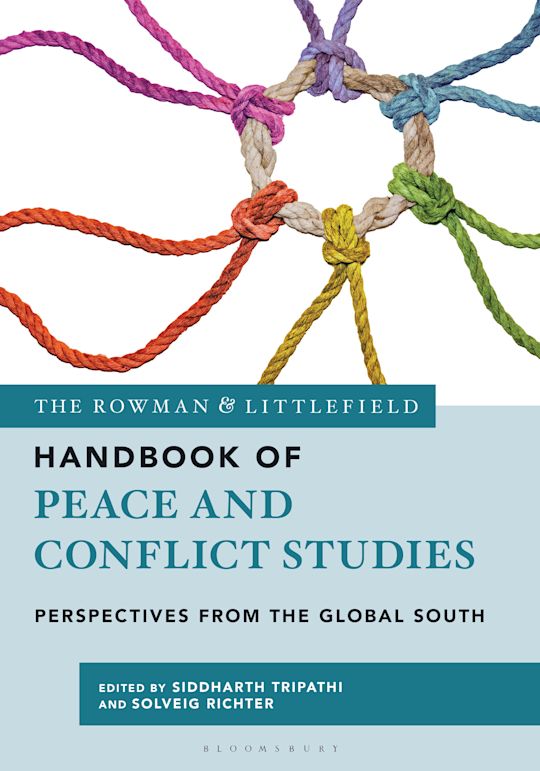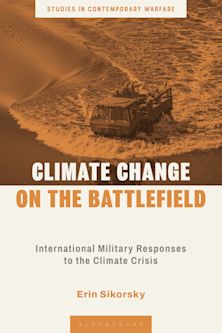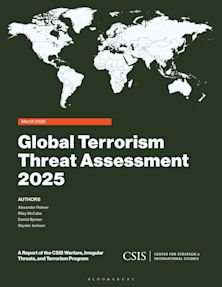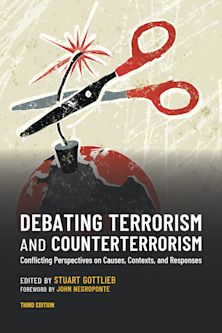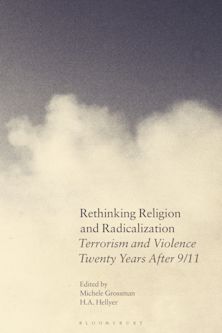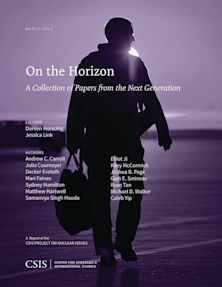The Rowman & Littlefield Handbook of Peace and Conflict Studies
Perspectives from the Global South
- Open Access
The Rowman & Littlefield Handbook of Peace and Conflict Studies
Perspectives from the Global South
- Open Access
This product is usually dispatched within 1 week
- Delivery and returns info
-
Free CA delivery on orders $40 or over
Description
This new open access handbook combines conceptual thinking with empirical illustrations to understand the trajectories of conflict and violence in our world.
Peace and Conflict Studies were broadly founded in the Northern Hemisphere, which strongly influenced how scholars understand patterns of peace or violence in Africa, Latin America and South-East Asia. This has proven to provide practitioners not only with false promises about external intervention, but even strengthened asymmetric colonial power structures in the way knowledge was and is produced. There is a need to make the discipline more plural by initiating and shaping a new research agenda that is more strongly rooted in the ground realities, contexts, imaginations – political, economic, and social – of the Global South(s).
This handbook is the first of its kind with a comprehensive and inclusive agenda for the field of peace and conflict studies: It engages in a thorough academic discussion not only about the Global South(s) but includes perspectives from the Global South(s). It reflects productive discussions with scholars from the Global South(s) that constitute the majority of authors in this handbook. In addition, while the handbook is a scholarly knowledge product, it is also an ongoing process for scholars, students and practitioners from both South(s) and North(s) with diverse backgrounds and positionalities.
This handbook is essential reference for students and researchers working on global peace and conflict studies, postcolonial studies, and international relations.
The ebook editions of this book are available open access under a CC BY-NC-ND 4.0 license on bloomsburycollections.com. Open access was funded by Leipzig University.
Table of Contents
Part I: The Global South(s) in Peace and Conflict Studies: Tracing the Field
Chapter 1: The Global South(s) and Peace and Conflict Studies: Asymmetries of Power, Definitions, and Dilemmas (Siddharth Tripathi and Edward Silvestre Kaweesi)
Chapter 2: Looking beyond Peace and Conflict Studies: The Global South(s) in other Disciplines (Thorsten Bonacker and Tareq Sydiq)
Chapter 3: The Local Turn and the Global South in Critical Peacebuilding Studies (Jonas Wolff)
Chapter 4: Taking Global South Seriously: Rebuilding the Metatheory of Peace and Conflict Studies (Navnita Chadha Behera)
Part II: Ontologies, Epistemologies, and Methodologies from the Global South(s)
Chapter 5: Alternativity and Pluriversality in Onto-Epistemological Conceptions of Peace and Conflict: Between Ideas and Realities (Michelle Small and Jacqueline De-Matos Ala)
Chapter 6: Transformative Research Methodologies from the Global South: Participatory Action Research in Colombia (Blanca Azucena Galeano Cardona, Beatriz E. Arias López, and Berit Bliesemann de Guevara)
Chapter 7: Positionality and Ethical Dilemmas as Seen from the South: Fieldwork in a Kenyan Securitized Milieu (Hawa Noor)
Chapter 8: Interrogating the Global North and its Racialized 'Domestic': A North-South Solidarity Agenda (Bretton J. McEvoy and Myrna E. Morales)
Part III: Reflections on Conflict
Chapter 9: Precolonial, Colonial, and Postcolonial Conflict and Forced Migration in Africa (Rose Jaji and Ulrike Krause)
Chapter 10: The Fault-Lines of Conflict in the Study of Migration (Luicy Pedroza)
Chapter 11: Global Resource Boom and Conflicts: Actors, Strategies, and Potentials for Transformation (Bettina Engels and Kristina Dietz)
Chapter 12: Invisibilized and Hypervisibilized: LGBTIQ+, Conflict, and Peacebuilding (Henri Myrttinen)
Chapter 13: The Mediatization of Conflict: Critical Reflections on Center–Periphery Constructions in the Media (Richard Stupart and Husseina Ahmed)
Part IV: Reflections on Violence
Chapter 14: The Politics of Naming. Epistemology and the Study of “Armed Non-state Actors” in the “Middle East” (Hanna Pfeifer)
Chapter 15: Mobilizing Grievances: Post-Colonial Legacies of Terrorism in Africa (Hawa Noor and Steve Wakhu Khaemba)
Chapter 16: War Economies: Common Traits and Implications for Lasting Peace (Sabine Kurtenbach and Angelika Rettberg)
Chapter 17: Civil–Military Relations and Urban Violence in Megacities: The Case of Brazil (Lucas P. Rezende and Rafael A. Duarte Villa)
Part V: Reflections on Peace
Chapter 18: Liberal Peacebuilding in the Global South: Crisis, Continuity, and Non-Western (African) Agency (Babatunde F. Obamamoye and Nicolas Lemay-Hébert)
Chapter 19: Challenging Peacebuilding from a Postcolonial Perspective (Kristine Andra Avram, Susanne Buckley-Zistel, and Alexandra Engelsdorfer)
Chapter 20: Everyday Peace: Local Peace Beyond the State (Birte Vogel and Dylan O'Driscoll)
Chapter 21: Traditional Peacebuilding: A Closer Look at Shared Characteristics (Jalale Getachew Birru)
Chapter 22: Guiding Environmental Peace Building from the Peace Ecology Perspective: Insights from Colombian Post-accord Context (Pablo Andrés Ramos and Isabella Romero Ángel)
Part VI: Reflections on Justice
Chapter 23: From Human Rights to Human Security (Steve Wakhu Khaemba)
Chapter 24: Postcolonial States, Nation-building, and Indigenous Rights (Farooq Yousaf and Japhace Poncian)
Chapter 25: Everyday Justice: Local Peace Beyond the State and Transitional Justice (Ruth Murambadoro and Clever Chikwanda)
Chapter 26: Conflict and Social Justice: Perspectives from the Global South (Achim Kemmerling and Sushobhan Parida)
Part VII: Reimagining Peace and Conflict Studies: Possibilities and Pathways
Chapter 27: Past the Epistemic Tensions to Imagine Global Peace and Conflict: The Fourth Way of Multiple Modernities (Edward Silvestre Kaweesi)
Chapter 28: From Decentering to (Re)centering in Peace and Conflict Studies: Contestations, Resignification, and Collaborations (Viviana Garcia Pinzón, Fabricio Rodríguez, and Siddharth Tripathi)
Index
About the Authors
Product details

| Published | Dec 11 2025 |
|---|---|
| Format | Hardback |
| Edition | 1st |
| Extent | 632 |
| ISBN | 9781538147344 |
| Imprint | Bloomsbury Academic |
| Illustrations | 4 bw illus, 5 tables |
| Dimensions | 254 x 178 mm |
| Series | Bloomsbury Handbooks |
| Publisher | Bloomsbury Publishing |
Reviews

OPEN ACCESS
Bloomsbury Open Access
Read and download this book free of charge from Bloomsbury Collections.









